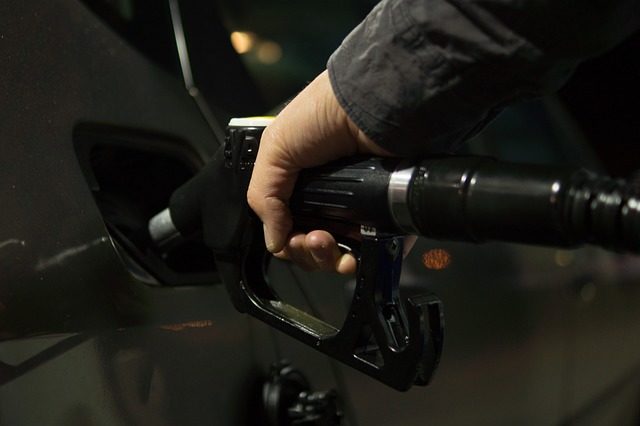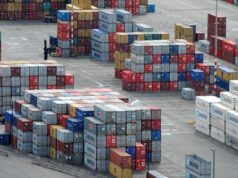The Philippine government has finally released implementing guidelines for the fuel marking program designed to curb oil smuggling and plug revenue losses arising from illegal importation or misdeclaration of petroleum products.
Joint Circular (JC) No. 01-2019 gives customs and internal revenue officers police powers to search premises, vehicles or vessels when there is probable cause or verified information that adulterated or diluted fuel is produced or stored in the facility.
JC 01-2019 implements the mandatory marking of refined, manufactured, or imported gasoline, diesel and kerosene in the Philippines, including those withdrawn from freeport zones to be introduced into the country, after taxes and duties have been paid.
Dated July 5, the JC was signed by Finance Secretary Carlos Dominguez III, Customs commissioner Rey Leonardo Guerrero, and Internal Revenue commissioner Caesar Dulay. It takes effect immediately after publication in a newspaper of general circulation.
The fuel marking program, which was formally launched last February, involves random field testing and confirmation on fuel required to be marked to check compliance with the mandatory marking requirement.
Marking of fuel products, whether imported or manufactured in the Philippines, becomes mandatory five years after the Tax Reform for Acceleration and Inclusion (TRAIN) law took effect January 2018.
BIR and BOC will implement the fuel marking program, including collection of marking fees. Under the National Internal Revenue Code (NIRC), as amended, BIR will collect the fuel marking fees for locally refined or manufactured petroleum, and BOC the imported petroleum products.
The joint venture Swiss-based SICPA SA and SGS Philippines will be the fuel marking provider.
Conduct of field tests
Field testing in refineries and their attached depots, gasoline stations and other retail outlets will be supervised by BIR. Field testing in all other areas such as vessels, depots, warehouses, tank trucks, or similar fuel-transporting vehicles will be supervised by BOC.
When necessary or convenient, the BIR and BOC officer, who will be assigned as member of field inspection teams, may be authorized to conduct testing in other areas.
A joint special task force may be established by BIR and BOC for the purpose of field testing.
JC 01-2019 notes that at all times, the BIR and BOC, accompanied by representatives of the fuel marking provider, must observe the appropriate protocol when entering the premises, including when presenting the mission order and necessary identification.
When there is reasonable cause or verified information received that a vessel, tank truck, or similar fuel-transporting vehicle is carrying any unmarked, adulterated, or diluted petroleum products, the BOC or BIR officer nearest the vicinity may conduct a stop and search in line with his authority to search for taxable products under Section 171 of NIRC and Section 222 of the Customs Modernization and Tariff Act (CMTA).
The BIR or BOC officer nearest a fuel manufacturing or refining facility, gasoline station and other retail outlet, depot, warehouse, building or place may enter and search the premises when there is probable cause or verified information that adulterated or diluted fuel is produced or stored in the facility.
Immediate testing, proper documentation
In all instance, the fuel marking provider must immediately test the petroleum product suspected to be unmarked, adulterated, or diluted, observing proper documentation of the process at all times, JC 01-2019 said.
Pursuant to Sections 15 and 171 of the NIRC and Section 214 of the CMTA, BIR and BOC officials and personnel may effect the search and seizure of the petroleum products found to be unmarked, adulterated, or diluted. All members of the field inspection units (FIUs) are deemed automatically deputized to perform the necessary function to effect the search, seizure and arrest.
Only authorized trained specialists by the fuel marking provider can mark the petroleum products, noted JC 01-2019. In no instance shall the marker have any unauthorized person including depot and refinery personnel, it added.
The marking process shall be undertaken with the oil company/depot representatives present to witness and attest to the veracity of the marking process, together with BOC and/or BIR officers, if warranted. For refineries, the injection processes are deemed undertaken in the presence of the refinery operation technicians.
Marked fuel products will not be stored and commingled with unmarked fuel products.
Locally refined or manufactured and imported petroleum products fully marked with the official fuel marker will be deemed for domestic distribution, use or consumption within the Philippine territory. No marked fuel, in whole or in part, will be allowed to be removed or transferred for exportation.
In case the petroleum product is found without the official marker or does not contain the required level of marker, the appropriate excise taxes will be assessed and collected, inclusive of the appropriate penalties, without prejudice to the confiscation and forfeiture of such unmarked or diluted fuel and the filing of the appropriate criminal case.
Pending assessment and payment of the excise tax due including the penalty, the field inspection team will impound the non-compliant fuel on site in accordance with the procedures to be issued.
All offenses relating to fuel marking will, in addition to penalties imposed under Title X of the NIRC, as amended, Section 1401 of the CMTA and other relevant laws, be punishable under Section 265-A of the NIRC, as amended.
The fuel marking provider will also provide the necessary training to BOC and BIR personnel to allow effective transfer of technology that provides an end-to-end solution to fuel tax fraud. – Roumina Pablo









